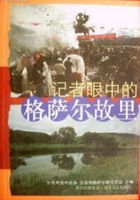Many of the radical antislavery men were never quite satisfied with Lincoln's ways of meeting the problems of the time. They were very earnest and mostly very able men, who had positive ideas as to "how this rebellion should be put down." They would not recognize the necessity of measuring the steps of the government according to the progress of opinion among the plain people. They criticised Lincoln's cautious management as irresolute, halting, lacking in definite purpose and in energy; he should not have delayed emancipation so long; he should not have confided important commands to men of doubtful views as to slavery; he should have authorized military commanders to set the slaves free as they went on; he dealt too leniently with unsuccessful generals; he should have put down all factious opposition with a strong hand instead of trying to pacify it; he should have given the people accomplished facts instead of arguing with them, and so on. It is true, these criticisms were not always entirely unfounded. Lincoln's policy had, with the virtues of democratic government, some of its weaknesses, which in the presence of pressing exigencies were apt to deprive governmental action of the necessary vigor; and his kindness of heart, his disposition always to respect the feelings of others, frequently made him recoil from anything like severity, even when severity was urgently called for. But many of his radical critics have since then revised their judgment sufficiently to admit that Lincoln's policy was, on the whole, the wisest and safest; that a policy of heroic methods, while it has sometimes accomplished great results, could in a democracy like ours be maintained only by constant success; that it would have quickly broken down under the weight of disaster; that it might have been successful from the start, had the Union, at the beginning of the conflict, had its Grants and Shermans and Sheridans, its Farraguts and Porters, fully matured at the head of its forces; but that, as the great commanders had to be evolved slowly from the developments of the war, constant success could not be counted upon, and it was best to follow a policy which was in friendly contact with the popular force, and therefore more fit to stand trial of misfortune on the battlefield. But at that period they thought differently, and their dissatisfaction with Lincoln's doings was greatly increased by the steps he took toward the reconstruction of rebel States then partially in possession of the Union forces.
In December, 1863, Lincoln issued an amnesty proclamation, offering pardon to all implicated in the rebellion, with certain specified exceptions, on condition of their taking and maintaining an oath to support the Constitution and obey the laws of the United States and the proclamations of the President with regard to slaves; and also promising that when, in any of the rebel States, a number of citizens equal to one tenth of the voters in 1860 should re-establish a state government in conformity with the oath above mentioned, such should be recognized by the Executive as the true government of the State.
The proclamation seemed at first to be received with general favor. But soon another scheme of reconstruction, much more stringent in its provisions, was put forward in the House of Representatives by Henry Winter Davis. Benjamin Wade championed it in the Senate. It passed in the closing moments of the session in July, 1864, and Lincoln, instead of making it a law by his signature, embodied the text of it in a proclamation as a plan of reconstruction worthy of being earnestly considered. The differences of opinion concerning this subject had only intensified the feeling against Lincoln which had long been nursed among the radicals, and some of them openly declared their purpose of resisting his re-election to the Presidency. Similar sentiments were manifested by the advanced antislavery men of Missouri, who, in their hot faction-fight with the "conservatives" of that State, had not received from Lincoln the active support they demanded. Still another class of Union men, mainly in the East, gravely shook their heads when considering the question whether Lincoln should be re-elected. They were those who cherished in their minds an ideal of statesmanship and of personal bearing in high office with which, in their opinion, Lincoln's individuality was much out of accord. They were shocked when they heard him cap an argument upon grave affairs of state with a story about "a man out in Sangamon County,"--a story, to be sure, strikingly clinching his point, but sadly lacking in dignity. They could not understand the man who was capable, in opening a cabinet meeting, of reading to his secretaries a funny chapter from a recent book of Artemus Ward, with which in an unoccupied moment he had relieved his care- burdened mind, and who then solemnly informed the executive council that he had vowed in his heart to issue a proclamation emancipating the slaves as soon as God blessed the Union arms with another victory. They were alarmed at the weakness of a President who would indeed resist the urgent remonstrances of statesmen against his policy, but could not resist the prayer of an old woman for the pardon of a soldier who was sentenced to be shot for desertion. Such men, mostly sincere and ardent patriots, not only wished, but earnestly set to work, to prevent Lincoln's renomination. Not a few of them actually believed, in 1863, that, if the national convention of the Union party were held then, Lincoln would not be supported by the delegation of a single State. But when the convention met at Baltimore, in June, 1864, the voice of the people was heard. On the first ballot Lincoln received the votes of the delegations from all the States except Missouri; and even the Missourians turned over their votes to him before the result of the ballot was declared.















